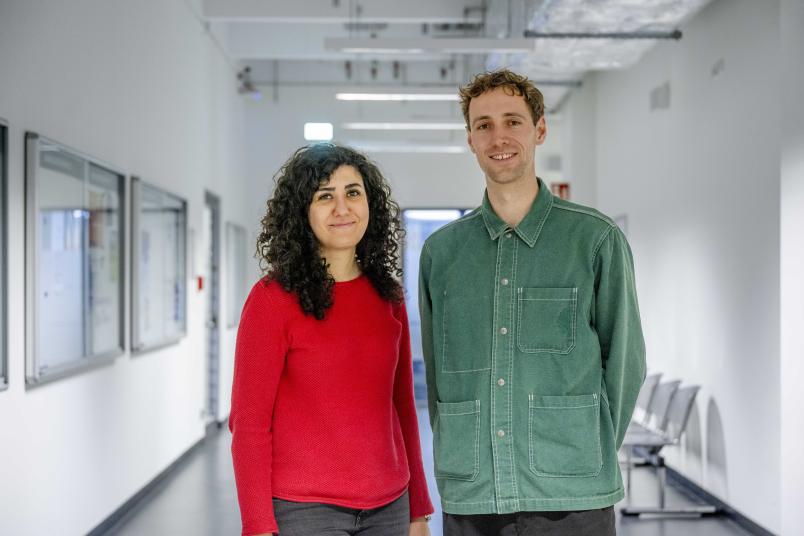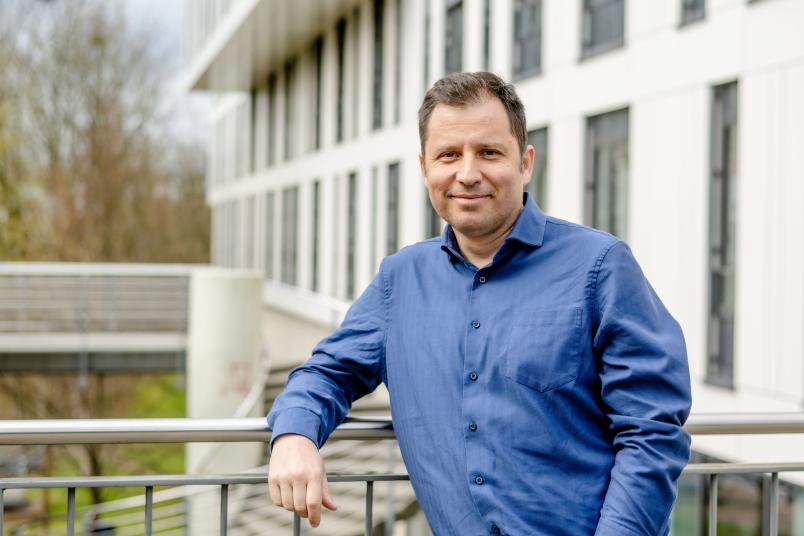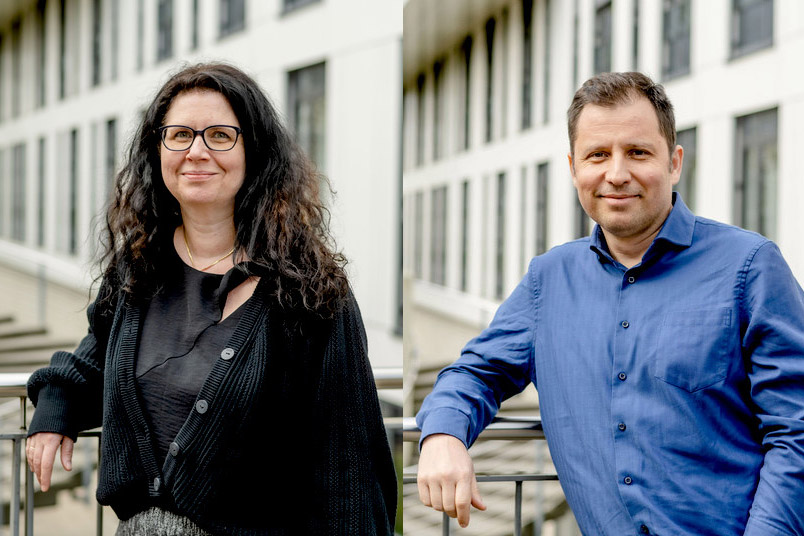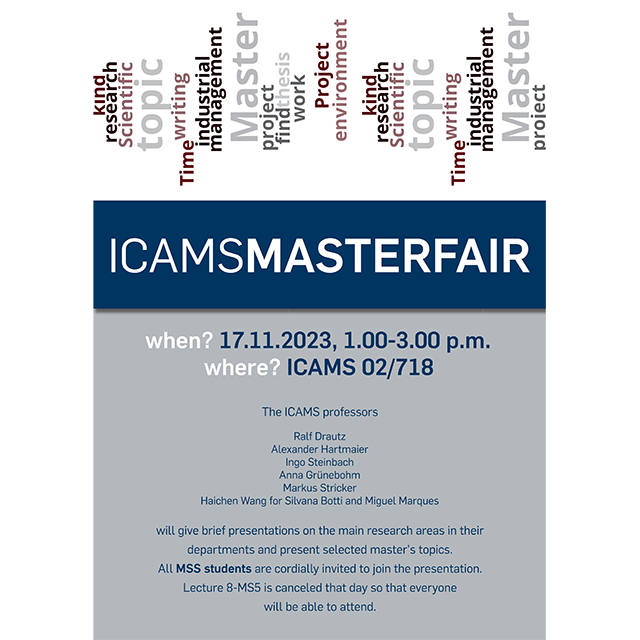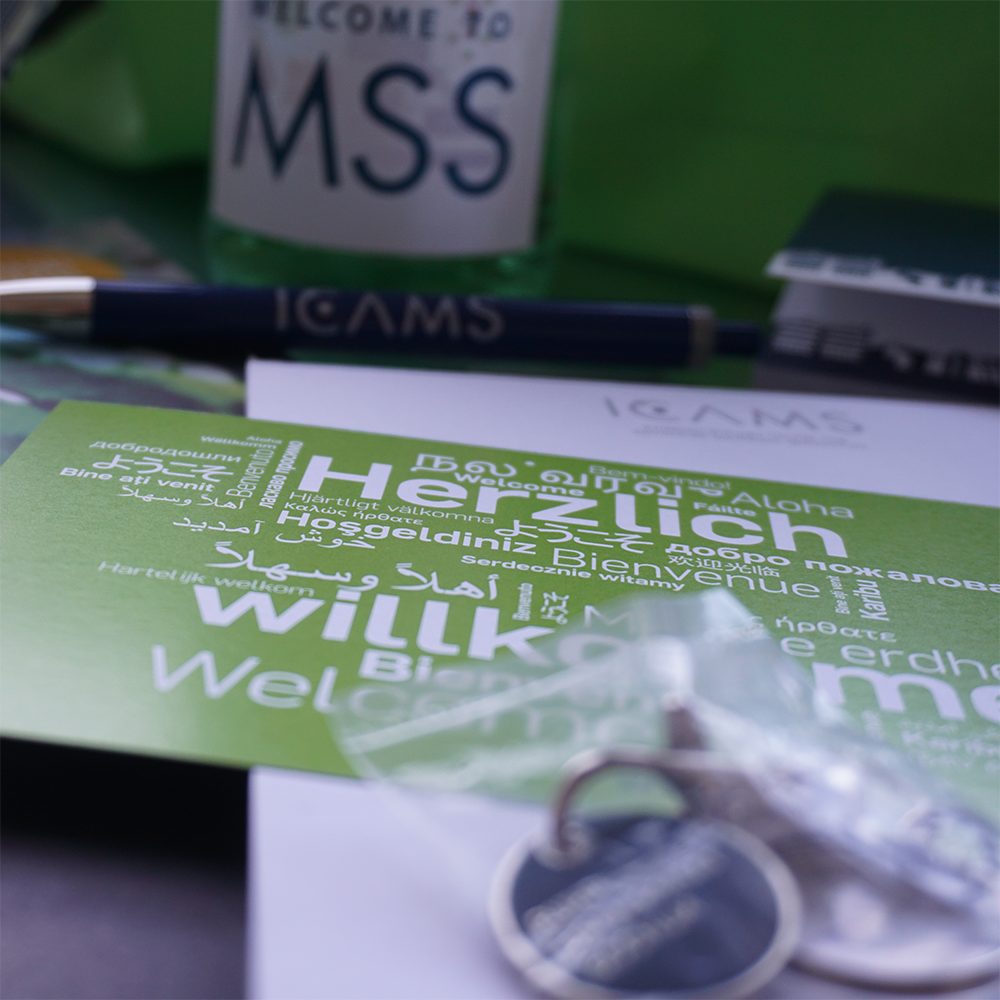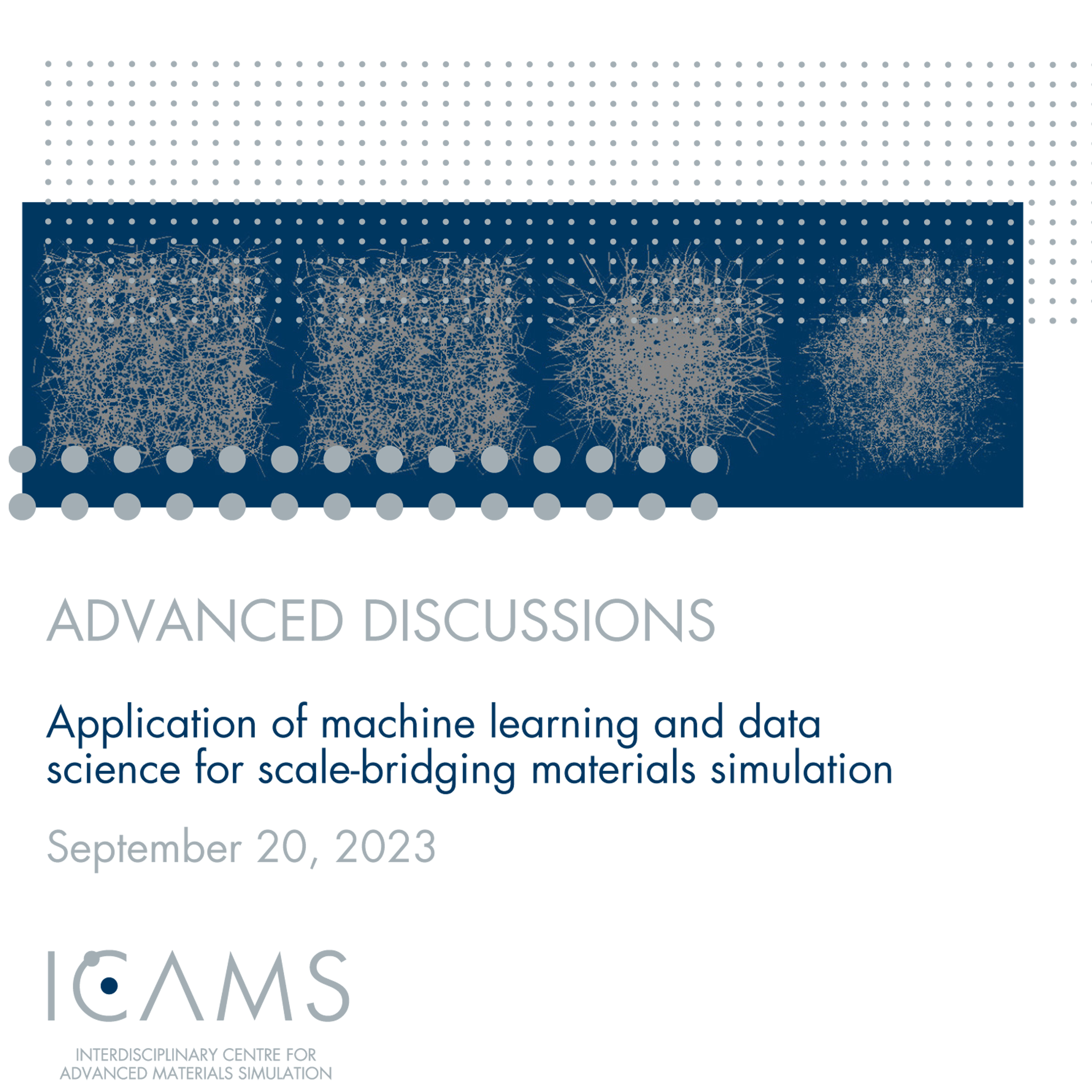- ICAMS
- Departments & Research Groups
- Atomistic Modelling and Simulation
- Scale-Bridging Thermodynamic and Kinetic Simulation
- Micromechanical and Macroscopic Modelling
- Artificial Intelligence for Integrated Material Science
- Computational Design of Functional Interfaces
- Scale-Bridging Simulation of Functional Composites
- Materials Informatics and Data Science
- High-Performance Computing in Materials Science
- Central Services

